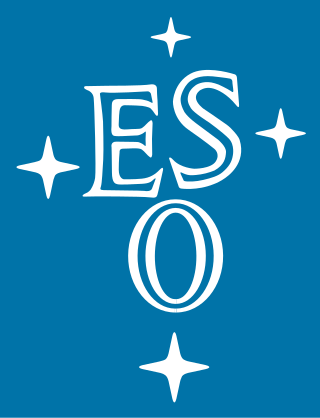
The European Organisation for Astronomical Research in the Southern Hemisphere, commonly referred to as the European Southern Observatory (ESO), is an intergovernmental research organisation made up of 16 member states for ground-based astronomy. Created in 1962, ESO has provided astronomers with state-of-the-art research facilities and access to the southern sky. The organisation employs over 750 staff members and receives annual member state contributions of approximately €162 million. Its observatories are located in northern Chile.
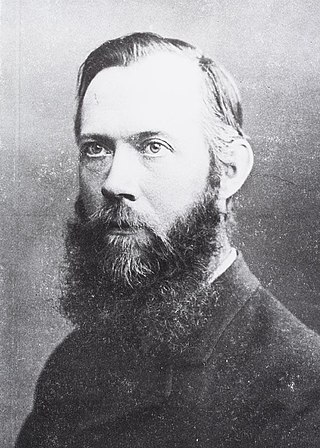
Antonie “Anton” Pannekoek was a Dutch astronomer, philosopher, Marxist theorist, and socialist revolutionary. He was one of the main theorists of council communism.

Jan Hendrik Oort was a Dutch astronomer who made significant contributions to the understanding of the Milky Way and who was a pioneer in the field of radio astronomy. The New York Times called him "one of the century's foremost explorers of the universe"; the European Space Agency website describes him as "one of the greatest astronomers of the 20th century" and states that he "revolutionised astronomy through his ground-breaking discoveries." In 1955, Oort's name appeared in Life magazine's list of the 100 most famous living people. He has been described as "putting the Netherlands in the forefront of postwar astronomy."

Frederik Kaiser was a Dutch astronomer. He was director of the Leiden Observatory from 1838 until his death.

Leiden Observatory is an astronomical institute of Leiden University, in the Netherlands. Established in 1633 to house the quadrant of Rudolph Snellius, it is the oldest operating university observatory in the world, with the only older still existing observatory being the Vatican Observatory.

The William Herschel Telescope (WHT) is a 4.20-metre (165 in) optical/near-infrared reflecting telescope located at the Roque de los Muchachos Observatory on the island of La Palma in the Canary Islands, Spain. The telescope, which is named after William Herschel, the discoverer of the planet Uranus, is part of the Isaac Newton Group of Telescopes. It is funded by research councils from the United Kingdom, the Netherlands and Spain.
Rychard J. Bouwens is an associate professor at Leiden University. He is also a former member of the Advanced Camera for Surveys Guaranteed Time Observation team and postdoctoral research astronomer at the University of California, Santa Cruz. He obtained his bachelor's degree in physics, chemistry, and mathematics from Hope College. He then went on to earn his Ph.D. in physics at the University of California, Berkeley under the supervision of Joseph Silk and also worked with Tom Broadhurst.
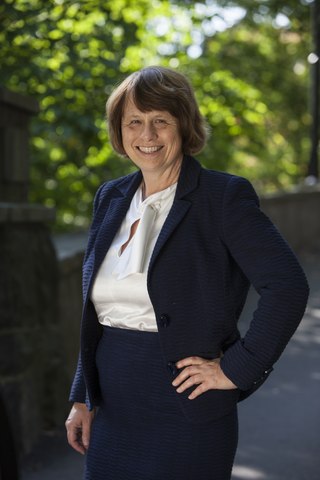
Ewine Fleur van Dishoeck is a Dutch astronomer and chemist. She is Professor of Molecular Astrophysics at Leiden Observatory, and served as the President of the International Astronomical Union (2018–2021) and a co-editor of the Annual Review of Astronomy and Astrophysics (2012–present). She is one of the pioneers of astrochemistry, and her research is aimed at determination of the structure of cosmic objects using their molecular spectra.
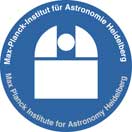
The Max-Planck-Institut für Astronomie is a research institute of the Max Planck Society (MPG). It is located in Heidelberg, Baden-Württemberg, Germany near the top of the Königstuhl, adjacent to the historic Landessternwarte Heidelberg-Königstuhl astronomical observatory. The institute primarily conducts basic research in the natural sciences in the field of astronomy.

The Royal Observatory, Edinburgh (ROE) is an astronomical institution located on Blackford Hill in Edinburgh. The site is owned by the Science and Technology Facilities Council (STFC). The ROE comprises the UK Astronomy Technology Centre (UK ATC) of STFC, the Institute for Astronomy of the School of Physics and Astronomy of the University of Edinburgh, and the ROE Visitor Centre.

The Netherlands Institute for Advanced Study in the Humanities and Social Sciences (NIAS) in Amsterdam, Netherlands, is an independent research institute in the field of the humanities and social and behavioural sciences founded in 1970. The institute offers advanced research facility for international scholars of all of the humanities and social sciences. It is a member of Some Institutes for Advanced Study (SIAS) and the Network of European Institutes for Advanced Studies (NetIAS).

Lodewijk Woltjer was an astronomer, and the son of astronomer Jan Woltjer. He studied at the University of Leiden under Jan Oort earning a PhD in astronomy in 1957 with a thesis on the Crab Nebula. This was followed by post-doctoral research appointments to various American universities and the subsequent appointment of professor of theoretical astrophysics and plasma physics in the University of Leiden. From 1964 to 1974 he was Rutherford Professor of Astronomy and Chair of the Astronomy Department at Columbia University in New York. From 1975 to 1987 he was Director General of the European Southern Observatory (ESO), where he initiated the construction of the Very Large Telescope. In 1994–1997 he was President of the International Astronomical Union. Woltjer was honored in 1987 with the Karl Schwarzschild Medal.
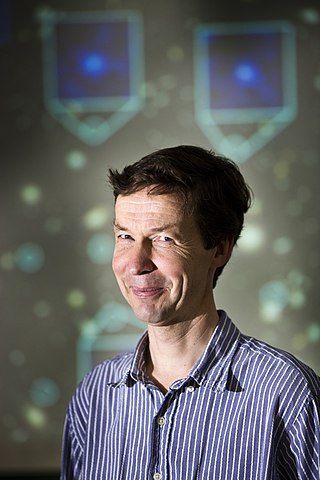
Marijn Franx is a Dutch professor of astronomy at Leiden University. He was a winner of the 2010 Spinoza Prize. His research focuses on the formation and evolution of galaxies. He is involved with both the Hubble and James Webb Space Telescopes.
George Kildare Miley is an Irish-Dutch astronomer. He holds a professorship at Leiden University, where he served as director of Leiden Observatory from 1996 to 2003.

Johannes Alphonsus Marie "Johan" Bleeker is a Dutch space research and technology scientist. He was director of the Netherlands Institute for Space Research from 1983 to 2003. He was involved in the setting up of the Horizon 2000 and Horizon 2000+ long term space science programs of the European Space Agency.
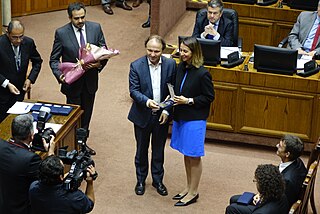
Violette Impellizzeri, is an Italian astronomer, astrophysicist, and professor.

Amina Helmi is an Argentine astronomer and professor at the Kapteyn Astronomical Institute at the University of Groningen in the Netherlands.
The Descartes-Huygens Prize is an yearly scientific prize created in 1995 by the French and the Dutch governments, and attributed to two scientists of international level, a French one chosen by the Koninklijke Nederlandse Akademie van Wetenschappen and a Dutch one chosen by the Académie des sciences, to reward their work and their contributions to the French-Dutch cooperation.
The Netherlands Research School for Astronomy is a graduate school specializing in astronomy, based in the Netherlands. This graduate school was founded in 1992.
Evert Johan Alexander Meurs is a Dutch astronomer at the University of Amsterdam and a former director of Dunsink Observatory in Dublin, Ireland. He spearheaded the efforts by Ireland's astronomers to become a member of the European Southern Observatory (ESO).
















